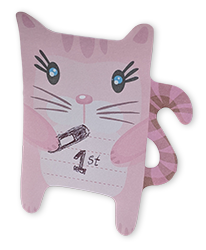Bandage First!It's important to remember
In a way this is a mental follow-up to something I wrote a while ago about Stepping on toes
This is sort of a guide or an important message for people like myself. Even though a lot of people reading this might go "duh!", for me (and possibly people like me), it was a very important realisation.
And it's also a reminder, because once I post this, I can't tell myself I didn't know.
The old process
I'm a programmer, a nerdy person. Strong on logic and generally weak on social/emotional things. When I encounter a problem, my thought process goes something like this:
- What happened?
- How/why did it happen?
- What can I do to prevent it?
- Implement a fix or lesson learned.
It's a very helpful process to keep growing better and making less mistakes. It's also missing a very obvious element. The actions & comfort for the person being hurt by the mistake.
Even in a programming world this lack is noticeable. If a user is unable to do X, you could spend weeks investigating why it even happened, but the user doesn't care. They just want to do X.
In the case of people, it's the bandage that has to be applied first. If you cut yourself, of course you will want to prevent it from happening again. But first! The bandage! You don't want to bleed all over the floor while you're fixing the knife block.
I drew myself a reminder on a post-it note:

The new & improved process
So the change in my process is this:
- What happened? - This means active listening!
- Apply bandage - Give comfort, stop the bleeding.
Pause before moving on, the comfort is probably not done.
- How/why did it happen?
- What can I do to prevent it?
- Implement a fix/lesson learned.
I'm painfully aware that it will take me a while to make it part of my habits. Active listening is something I can still learn a lot on in general. And it's something I wished I learned long ago. Although I guess that's true for any important lesson...
Thank you for reading.
Additional notes
This writing is to show some of my own thought-patterns and share the lessons I get. It's missing a lot of detail, like how the nature of the bandage is heavily dependent on the situation. It can be in the form of apologies, a hug, patience, just listening, etc.
This is all before assigning any guilt or responsibility. The emotions are there and have to be dealt with first before the cause can be explored. It's hard to investigate something when clouded by feelings.
It's also important that the bandage is genuine. Which is why active listening is so important. Understand why they're hurt, what they are feeling. It shouldn't be an automatic reaction.
The only reason I put it down as a "process" is to help my stubborn mind to understand the importance of it.
 Copyright © 2020 - Nimja.com
Copyright © 2020 - Nimja.com